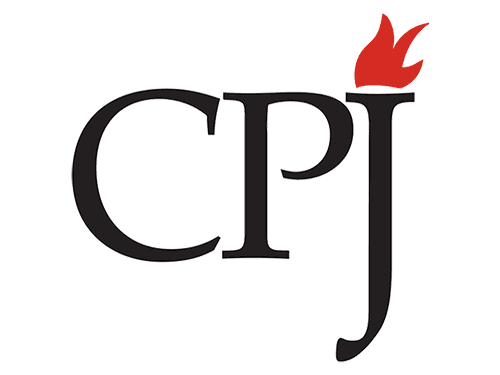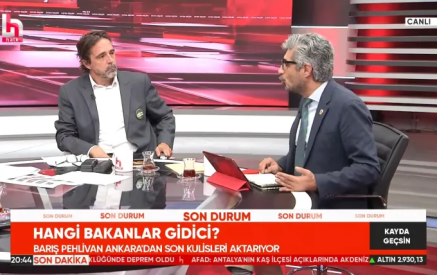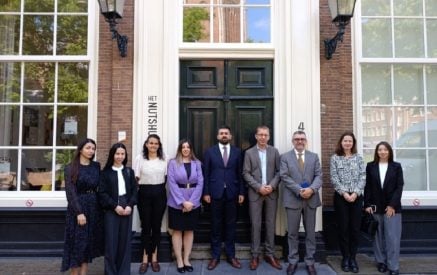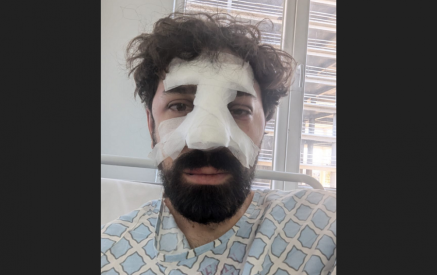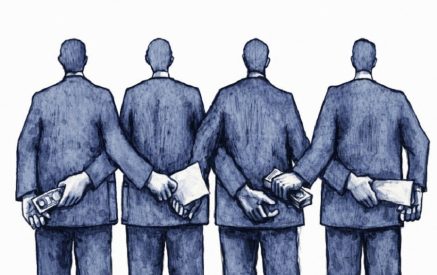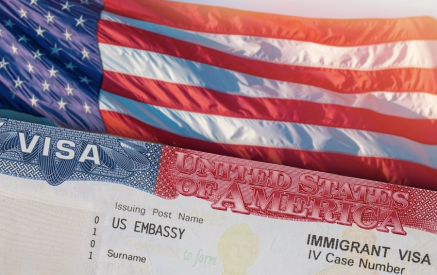The Netherlands is generally considered to have a positive press freedom reputation, but when the independent Dutch Association of Journalists released the findings of its survey of over 350 female journalists in May, over half said they had been subjected to intimidation or violence in their work and around 70 percent said these threats were a danger to press freedom.
The threats–both physical and digital–can affect mental health and increase journalists’ reluctance and fear to work, with some respondents saying they avoid people and venues, or self-censor on topics that previously led to harassment, the survey found. In extreme cases, some said they had left journalism as a result of the harassment.
When CPJ contacted some of journalists who took part in the survey, to ask about their experiences, several said they would rather not talk to avoid further harassment. One of them simply wrote in an email, “I want to leave this behind and focus on my current work.”
Three journalists did agree to speak out about their experiences: recalling how their coverage of politics, current affairs, and social issues resulted in online harassment in the form of slurs about their gender or religion; how they have been stalked and doxxed; or approached in an intimidating manner on the street; and how they sometimes have to deal with the challenges on their own.
Read also
Their responses have been edited for length and clarity.
Hassnae Bouazza, freelancer reporting on religion, integration, and feminism for outlets including the daily NRC Handelsblad and the broadcasters VPRO and IKON
Threats and harassment come in various shapes and forms. For example, when I was announced to appear on TV and comment on subjects related to Islam, Morocco or the Israeli-Palestine conflict, a massive uproar of slurs and slanders would start on social media or in emails even before the TV show started. People used to threaten violence and rape, throwing the most violent curses at me, calling me names. The same happens if I publish anything critical of Dutch society or just generally dare to express my views on politics. Those who attack me often also approach people who give me work, trying to hurt my reputation, to isolate me socially. All this, just because I am a woman and a Muslim. A “Muslim whore” was kind of my second name for a long time.
The only time these threats got physical was when one guy, who had been stalking me online, somehow found me at the airport when I was working on a documentary. He took photos of me and put them on Twitter with vile comments. This unsettling experience made me feel unsafe in public places. Before, I always thought that I was safe outside. I believed that no one knew me. This made me understand that online harassers might well recognize you, locate where you live and work, and they will try to hurt you and make you feel unsafe.
These attacks deeply affected my life. At one point, I even became a bit paranoid, wondering if I would meet those online abusers on the street and also feeling unease when meeting new people, [wondering] if they had read the online slander about me and thought it was true.
The attacks affected my online presence, especially around the sudden death of my mother in 2016, who was also mentioned in the comments. Seeing my mother being dragged into my public involvement left a mark, so I stopped Twitter discussions.
In the end, they never managed to get what they want. I do not write differently, I remain just as sharp and critical as before.
The sad thing is that in the Netherlands, women reporters who face these kinds of attacks do not get much support, although now things seem to be slowly changing. I even stopped reporting the abusers to the police because it felt useless. Unfortunately, you have to deal with these attacks alone.
Clarice Gargard, freelance reporter and columnist covering social issues, politics, human rights for outlets including NRC Handelsblad
Since I often express my opinion on political and social issues, I regularly receive online attacks, threats. Mostly insulting, derogatory, racist and sexist comments on Twitter or Facebook connected to my gender and skin color, but even death threats because of my work. These attacks are sometimes connected to the issues I am covering, but mostly I got them simply because I am a visible black woman in Dutch media and also one of the first such columnists to work for one of the biggest newspapers in the country, NRC Handelsblad, giving a different perspective on society.
People attack me partly because they disagree with me, but also because a lot of them think that I should not be given a platform to express my opinion on these issues. I noticed that even if I do not write on controversial issues, I get the same kind of attacks. A lot of people seem to have a problem with women expressing their opinion in public in general, and things get worse when you add race or other identities to it. It worsens when radical right-wing politicians, media or pundits target you, as has happened to me. In some cases, I have been approached in the street with an intimidating attitude, but not as aggressive as online.
The fact that it happens so often might normalize it, but I refuse to accept it as normal, just like we would not accept someone shouting profanities toward you on the street. I set up walls around me to protect myself: filters on social media for negative comments, I do not Google myself to avoid being confronted with hatred, and I asked my employers not to tag me when they post my articles online.
I reported complaints twice to the police in recent years concerning online attacks. With the first one nothing really happened. The second complaint was investigated by the police, the case went to the district attorney and the investigation is still ongoing. In addition, I also got overwhelming support from fellow journalists, it was widely reported in media and helped to open a debate in the media industry about how woman journalists from marginalized communities are targeted, whether the media outlets do everything they can to protect their journalists. At the same time, it all happens at my expense, so I and others had to face these vile attacks and speak out for everyone to realize that it is a serious problem.
This happens not only to me, but fellow journalists, politicians and activists who have vulnerable positions and who might not be as visible as I am, and that is why I think we should set up protocols on how we deal with it, not only for the victims but also for the perpetrators. Media outlets, law enforcers and the digital platforms should be much more aware of the climate we are living in. And outlets should think about how they can protect the people who are working for them. We need their help.
We need protocols on how to deal with those who commit these acts: it should not be accepted as normal, they should not be allowed to get away with it.
Elfie Tromp, freelance author, columnist for outlets including NPO Radio 1, and performer
In the fierce spirit of “I love when you hate me,” it was on my bucket list to be picked at by the Netherlands’ most notorious far-right politician. But after the experience I had this year, I would say it was not worth it. When I published a radio column in March about racist attacks in a small town, putting the blame on Geert Wilders, the head of the Freedom Party, he immediately attacked me back, calling my column “disgusting”.
His comments triggered a wave of online slurs against me on social media, mainly on my Instagram and Twitter feeds, going on for weeks and weeks. They even tried to hack my emails, website and social media accounts. After a while I felt extremely unwelcome and unsafe to be online anymore and was afraid of posting anything. The attacks got so bad that for a couple of days, I got police protection when I was invited to participate in a festival. Luckily nothing happened. These are, in the end, just people screaming online, but at the same time, you never know and it takes only one idiot to do something really bad. The radio station gave me full support and assisted me in many ways to cope with the problem.
During the last couple of years, I have been the target of online attacks several times. Two years ago, I filed a complaint with the police when someone doxxed me. [The investigation is ongoing.]
I noticed that these waves of hatred changed my journalism, I would rather avoid certain topics for some time, saying to myself that it was not worth the hassle for such little money I earn with journalism. But in the end, I went back to who I really am and continued to write just like before.
The most toxic part is the feeling of powerlessness, the fact that you lose control of the conversation. That is why I decided to change tactics and try to take back [the] conversation by complimenting people who slurred or threatened me online. The surprising thing is that this way, with one or two nice sentences, I could often break through the hatred, many of them reacted in a nice way and we started a conversation. I even asked my fans and followers to do the same and fight hatred with cute love messages. I call them my army of lovers.




















































